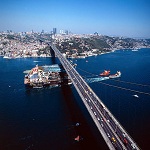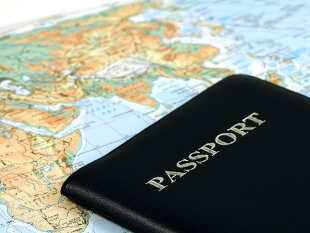 “If the earth was a single state, Istanbul would be its capital”, said Napoleon Bonaparte.
“If the earth was a single state, Istanbul would be its capital”, said Napoleon Bonaparte.
PricewaterhouseCoopers (PwC) and the Urban Land Institute (ULI) ranked Istanbul as the top city for new acquisitions and development for the second year in a row in 2011. However, the ancient capital holds as many risks as opportunities.
In the report, “Emerging Trends in Real Estate Europe 2011,” investors expressed a belief that Istanbul would not be as badly affected by the European debt crisis as other cities on the continent. The Turkish economy is expected to slow in 2012, and perhaps become less attractive to portfolio investors seeking quick returns. However, Istanbul real estate remains a “modestly good” prospect, according to those surveyed by the report.
“The property market [in Istanbul] has been developing positively in the last 10 years,” says Dr Vehbi Cemil Hariri, senior executive director at CBRE Group. “With [apartment] prices, office prices, land prices increasing we have seen quite a stable market in real estate even when we had some problems in 2009.”
In 2011, the best real estate sector acquisitions in Istanbul were office (24.5%), retail (24.5%), hotels (18.9%), industrial (17.0%), and rental (15.5%), according to the report.
Local residents wanting to increase market valuations may have had an effect on the results, the report admitted. However, there was a definite increase in the positive attention of international investors.
According to statistics released at the end of 2011 by Turkey’s Land Registry Directorate General, the total foreign direct investment in Turkey’s real estate sector hit $200m in the second quarter of 2011, a two-year high. Also in the second quarter of 2011, the total value of real estate sales to foreigners was $781m.
The favorite areas for foreigners tend to be along the city’s Bosporus Strait and in the neighborhoods of Nisantasi, Sisli and Beyoglu. Real estate in Istanbul is usually less expensive than in most Western European countries, yet the valuations of the properties are expected to increase in the coming years. Rents remain stable in the industrial areas at around $6.0 to $7.0 per square metre (sqm) in Hadimkoy and $5.5 to $6.5 per sqm in Gebze. Service charges are between $7.0 per sqm/month – $12.0 in modern air-conditioned offices, according to research by CBRE.
Indeed, at first glance Istanbul appears an ideal city for investing in real estate. It is a young, lively, modern city of approximately 15m inhabitants, and is full of cultural and historic sights. Turkish Airlines, which was chosen as Europe’s best airline last year, is constantly expanding flights from Istanbul. Public transportation is relatively good, with metro and tramlines, buses and ferries. In 2011, over 8m tourists visited the city.
Beware the delights
Even so, much still needs to be done to improve the ownership conditions for foreigner investors. Red tape blocks foreigners from easily investing in the Turkish real estate market, Hariri says. “For foreigners there is a limitation on the size of the land they can buy. They cannot buy more than 10% of the land in the area, ” he says. “There are also some limitations with location. It has to be away from the military bases, for example.”
One big step in the right direction are two laws that have been drafted to allow the sale of unqualified state land, or 2-B land, and properties to foreigners. Once approved, the sale of the land, which is estimated to make up 3.4% of land in Istanbul, could generate up to $15bn for the Turkish government.
Another big downside is that the city is overburdened with infrastructure projects and clogged with traffic. Occasional bombings persist and frequent demonstrations can turn violent. Perhaps the biggest deterrent is that the city is expecting a massive earthquake that can occur at any time in the next 30 years. Turkish insurance companies only very rarely provide coverage for earthquakes. “In Istanbul there are some areas which are higher risk compared to other areas. The [risk] degree is connected to the land quality and soil quality,” Hariri says.
Gone are the times when foreigners who wanted to own property in certain areas of central Istanbul had to hire a trusted lawyer to purchase the property for them, and keep it in their name – risky business to be sure. Yet foreigners still can’t own more than 10% of the land in a given area of the city. Buying historical properties is often even very frustrating and the process can take up to two or three years, and needs approval from the department of antiquities. Getting a license to build new properties is comparatively straightforward, and usually takes about two to six months.
The easier access that Turks now have to loans also prompt some fears of a building real estate bubble. However, regulation and an increase in home loan interest rates coupled with the depreciation of the lira reduce this risk, say analysts.
Source: Balkans.com Business News
 Turkish Labor Law
Turkish Labor Law


